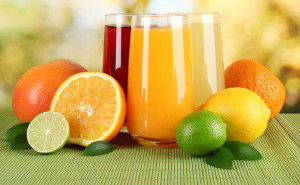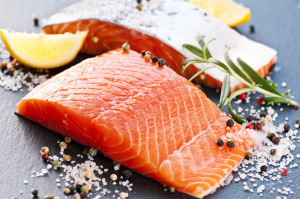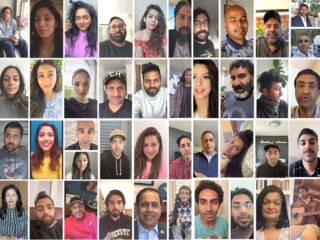Taking Care Of Yourself From The Inside

• Spice things up: use chili and cayenne pepper as regular ingredients in your meals.
Research has shown that spicy foods exert a thermogenic effect in your body. Therefore, to cool it down, your body needs to burn calories more efficiently, which is achieved by a faster metabolic rate.
• Low glycemic index foods produce a lower insulin response and are thought to help promote a more efficient metabolism as well.
• Higher insulin responses are seen when eating refined carbohydrates and sugars; these can cause your metabolism to be more sluggish and less efficient.
• Protein is essential to help build muscles. Combine this with low resistance exercises to increase muscle definition and mass. Higher muscle mass equals faster metabolism.
A healthy digestive system is necessary to treat and prevent feelings of bloating, sluggishness, lethargy, and constipation. Ways to do this include:
• Using a probiotic daily – this can be found in foods such as yoghurt or can be taken in tablet/powder form. Evidence shows that probiotics help to prevent digestive discomfort when taken daily for at least three months.
• Reduce your stimulant intake – caffeine, sugar and alcohol give you a temporary boost but in the long run can leave you feeling tired. Limit your intake of these items and instead replace them with sufficient water to keep yourself well hydrated and improve your bowel movements.
• For healthy bowel habits – physical activity is essential! Make sure to get at least 30 minutes of exercise daily.
Feeding Your Skin

• Varied diet – no single food group or food can supply all the essential vitamins and minerals for our skin and bodies; therefore, it’s essential that you have a good variety of foods from different food groups on a daily basis.
• Free radicals are the by-products of natural bodily processes as well as environmental sources, such as pollution and sunlight. Excessive production of these can result in damaged skin cells and age your skin ahead of its years. Antioxidants can counteract the actions of free radicals and can help make them harmless. To help get your daily dose of antioxidants, variety is key!
• Fluids – an essential for supple and well-hydrated skin. All hot drinks, soups, and juices count towards your daily fluid intake. Aim for 6-8 200ml (6.7 ounces) glasses per day. Avoid overloading on caffeinated drinks and sugary juices or soda, as these will dry out your skin.
• If you are prone to acne, you can help prevent flare-ups by controlling your diet. Acne is a result of unbalanced blood sugar levels, high levels of insulin hormone, and high inflammatory agents. Choosing foods to counteract these factors can help. A reduction in refined grains; refined sugar; dairy and most cooking oils can help prevent further blemishes. Preventing acne can be achieved by ensuring your diet is low in these foods and high in whole grains, oily fish, and colorful fruits and vegetables. All these foods encourage the skin to rejuvenate itself and promote production of new skin cells.
• Cellulite is a result of increased fat deposits under connective tissue and muscle. Along with hormonal changes, lack of activity and a diet high in fat, salt and sugar are the main causes of cellulite. Excessive salt leads to fluid build-up in cells, giving skin that dimpled appearance. To prevent and reduce cellulite, it is necessary to reduce your intake of these foods in your diet as well as to increase your activity level to rid of fat deposits.
Healthy, Strong, and Beautiful Nails
Nails are composed of keratin protein, therefore it is essential that you have a sufficient amount of protein in your daily intake. However, for beautiful, strong, healthy, and shiny nails that you can truly be proud of, preventing and treating any vitamin and mineral deficiencies is a must!
• Vitamin B – essential to prevent ridged nails, breakage, and to help reduce risk of nail infections. Rich sources of B vitamins include fortified cereals, red meat, fish, and nuts.
• Iron – abundant in lean meats and green leafy vegetables. Ensure you have a good intake of vitamin C too (found in colored vegetables and citrus fruits) to maximize absorption of iron. One way to do this is to have fruit juice at meal times.
• Calcium and vitamin D – both mineral and vitamin work together to encourage nail growth and prevent dry, brittle nails. Vitamin D works by improving absorption of calcium, which promotes nail growth and strength.
Vitamin D is mainly found in oily fish and cod liver oil supplements. Its main source, however, is UV rays from safe levels of sun exposure. Calcium is largely available in most dairy products and can be taken as a joint/bone supplement with vitamin D to maximize absorption and effectiveness.
Eat Your Way To Luscious Locks

• Most B vitamins (iron and folic acid) can contribute to shiny hair and help promote hair growth.
• Certain food sources that are thought to promote hair growth include salmon and most oily fish, due to their high level of essential fatty acids, omega 3, vitamin B, selenium, and magnesium.
• Flax seed oil is also a rich source of essential fatty acids and can reduce excessive hair loss caused by conditions such as psoriasis and eczema.
However, many hair loss and thinning conditions can be a result of underlying medical issues such as an under active thyroid. So, it’s a good idea to have this checked out by a medical professional!
About Saran Garcha

To contact Saran Garcha, please go to her Facebook page: Saran Garcha – Registered Dietitian, or email her at garchadiet@gmail.com










